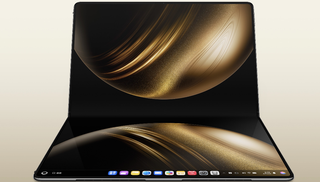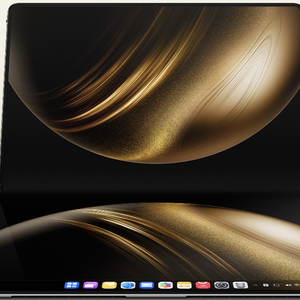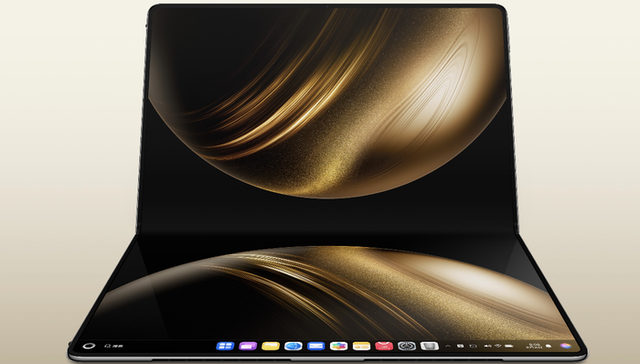by Lu Keyan
Huawei on May 19 officially launched its first personal computers running HarmonyOS, its in-house operating system, marking the company’s full transition away from Windows. The transition comes as Huawei accelerates efforts to localize its PC systems; Microsoft’s licensing agreement with the company expired in March and was not renewed.
The two new models — the HUAWEI MateBook Pro, starting at 7,999 yuan (US$1,100), and the HUAWEI MateBook Fold, priced from 23,999 yuan (US$3,300) — both run HarmonyOS 5 and are the culmination of a five-year effort by Huawei to develop fully localized PC products.
The Fold is the industry’s largest commercial foldable laptop, featuring an 18-inch screen and weighing just 1.16kg. When folded, it becomes a compact laptop under 13 inches, with both physical and virtual keyboard support. Huawei says it uses its most advanced and thinnest hinge to date for the foldable screen.
Meanwhile, the MateBook Pro targets the broader consumer market, weighing 970 grams and measuring 13.5mm thick. Huawei says it's the company’s longest-lasting laptop, with up to 10.2 hours of continuous use.
At the launch event, Huawei Consumer BG Chairman Richard Yu emphasized the integration of HarmonyOS with AI and hardware. New features include voice-command-based PPT generation, document summarization, auto-generated meeting notes, and one-click system settings. The system also enables seamless device collaboration — including keyboard and mouse sharing and app continuity — across Huawei phones, tablets, and PCs, a key differentiator from Windows.

Huawei did not disclose full hardware specifications, but leaked information suggests the devices are equipped with the Kirin X90 processor, replacing Intel chips. The Kirin chip is part of Huawei’s long-running “Project Tashan” to localize its PC chip supply chain after U.S. sanctions cut off Intel access.
The HarmonyOS ecosystem, originally designed with distributed architecture for cross-device collaboration, is now expanding to PCs. While porting the system itself posed limited technical difficulty, replicating the software ecosystem of Windows remains a hurdle. Many users still rely on applications not yet natively available on HarmonyOS.
Yu said more than 150 native apps for HarmonyOS PCs are currently in rapid development, while over 1,000 cross-device apps have already been adapted. Another 2,000 are in progress, including Tencent Meeting, WeChat, and enterprise versions of both. The new PCs also support over 1,100 third-party hardware devices.
For software not yet supported — such as Adobe’s suite — HarmonyOS users can switch to a virtual Windows environment via virtualization tools.
A Huawei distributor told Jiemian News that the high price and foldable form factor of the MateBook Fold gives it a luxury appeal likely to attract high-end business users. “Its volume will likely be limited at first due to market education and production constraints,” the distributor said. In contrast, the MateBook Pro builds on Huawei’s reputation in the business laptop segment and may be better received by mainstream users.
Huawei also introduced a HarmonyOS-based PC for government and enterprise customers — Qingyun HM940. Analysts see institutional buyers as a key early market, where security and autonomy concerns make Chinese-developed systems more appealing. Government and enterprise applications are also more concentrated, making ecosystem migration less costly.
Huawei is currently China’s second-largest PC vendor, behind Lenovo. According to Canalys, China shipped 39.7 million PCs in 2024, with Huawei claiming an 11% market share.
As Huawei rolls out its fully localized PC lineup, its HarmonyOS computers are poised to become a test case for whether Chinese-developed operating systems can gain traction in a market long dominated by global incumbents.





